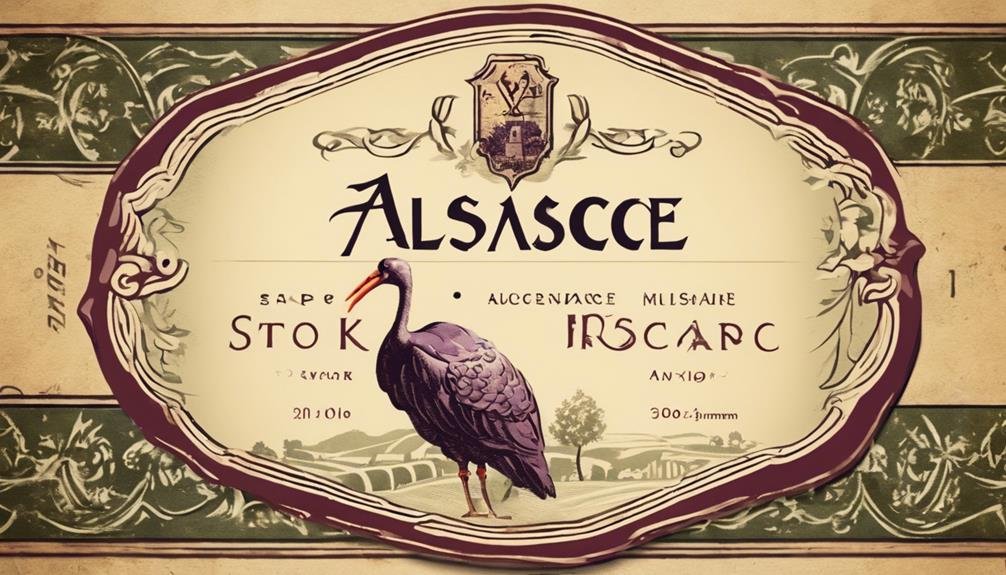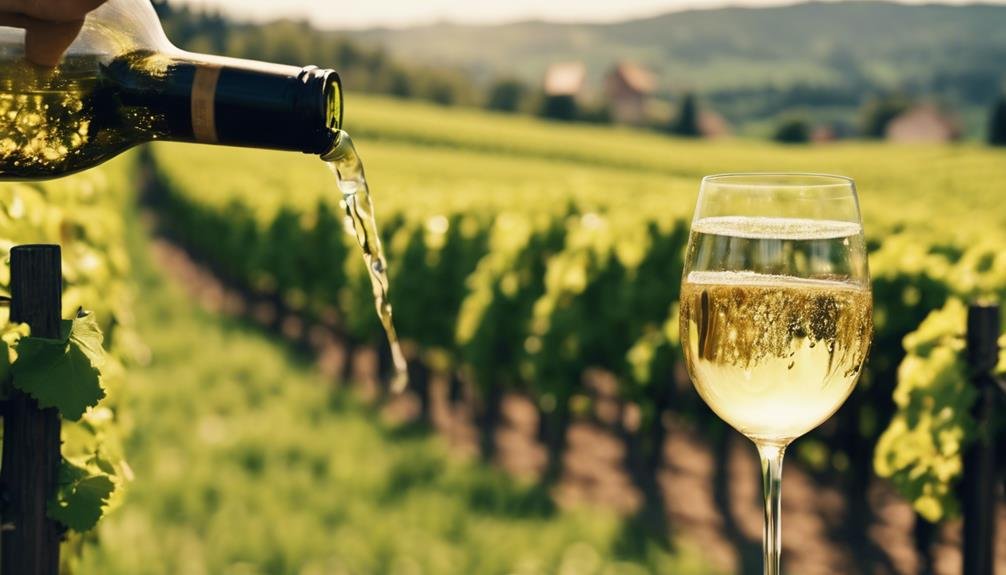Alsace wines offer enchanting floral and fruity aromas, influenced by the Vosges Mountains and a sunny, dry climate. With seven main grape varieties, they boast high acidity and versatile food pairings. Grand Cru Prestige wines represent the pinnacle of Alsace's winemaking, originating from prestigious vineyards and embodying unique terroir. Understanding Alsace wine labels is essential, as they disclose grape variety, sweetness level, and vintage details. Pronunciation guides assist in exploring the region's terroir nuances, showcasing craftsmanship and enhancing tasting experiences. Each bottle holds a story waiting to be discovered, revealing the excellence of Alsace with every sip.
Aromatic Wines of Alsace
Aromatic wines of Alsace, renowned for their enchanting floral and fruity aromas, are a hallmark of this distinguished wine region in northeastern France. The terroir influence, with its unique mix of Vosges Mountains protection and a sunny, dry climate, gives these wines their distinctive character.
This terroir, along with the seven main grape varieties grown in Alsace, creates an ideal environment for producing wines with high acidity and expressive aromas.
When it comes to food pairings, Alsace wines are versatile and pair well with a variety of dishes. The floral and fruity notes in these wines complement a wide range of foods, from spicy Asian cuisine to creamy cheeses and delicate seafood dishes.
Unveiling Grand Cru Prestige
Revealing the pinnacle of Alsace's winemaking excellence, the Grand Cru Prestige wines stand as the epitome of quality and craftsmanship in this renowned wine region. These wines showcase Grand Cru exclusivity, originating from the most prestigious vineyards in Alsace. Produced under stringent regulations, Grand Cru wines are labeled with specific vineyard names, emphasizing their unique terroir and exceptional quality. Each bottle encapsulates the essence of the vineyard it hails from, offering a taste of the region's finest expressions. The Grand Cru Prestige wines are highly sought after for their unparalleled character and complexity, making them a symbol of the highest winemaking standards in Alsace.
| Grand Cru Prestige | Description | Notable Vineyards |
|---|---|---|
| Riesling | Crisp and elegant | Schlossberg, Sommerberg |
| Gewürztraminer | Aromatic and exotic | Sporen, Furstentum |
| Pinot Gris | Rich and full-bodied | Kessler, Vorbourg |
Understanding Alsace Wine Labels

Delving into the intricate world of Alsace wines, a thorough understanding of Alsace wine labels is essential for enthusiasts and connoisseurs alike. Alsace wine labels carry label nuances that provide valuable information, including the grape variety, sweetness level, vintage, and often vineyard details. Pronunciation guides on labels help navigate the regional terroir, reflecting the unique characteristics of Alsace wines.
These labels also showcase the winemaking process, highlighting the craftsmanship behind each bottle. By deciphering these labels, wine lovers can uncover the essence of Alsace wines and appreciate the quality and tradition encapsulated in each sip. Familiarizing oneself with the details presented on Alsace wine labels enhances the overall tasting experience and deepens one's connection to this esteemed wine region.
Frequently Asked Questions
How Does Alsace Terroir Influence Wine Taste?
Soil composition and microclimate in Alsace influence wine taste by imparting unique mineral notes and acidity. Grape varietals like Riesling and Gewürztraminer thrive in this environment, leading to aromatic, high-acid wines. Traditional winemaking techniques preserve these terroir-driven flavors.
What Are the Key Factors in Alsace Wine Aging?
The aging process in Alsace wines is a harmonious dance of time and flavor development. Key factors such as grape variety, acidity, and winemaking techniques contribute to the elegant transformation, culminating in nuanced and complex profiles.
Are Biodynamic Practices Common in Alsace Vineyards?
Biodynamic farming is a growing trend in Alsace vineyards, with many producers embracing sustainability practices. This holistic approach focuses on organic methods, lunar cycles, and biodiversity to enhance soil health and grape quality.
How Do Alsace Winemakers Handle Climate Challenges?
Winemakers in Alsace navigate climate challenges through adaptive techniques like vineyard orientation, canopy management, and irrigation. Weather monitoring systems aid in predicting and responding to fluctuations, preserving grape quality and ensuring consistent wine production despite environmental variations.
What Makes Alsace Sparkling Wines Unique?
Alsace sparkling wines captivate with sparkling elegance, a fusion of bubbly innovations and Alsace tradition. Crafted with precision, these effervescent gems boast a unique charm, offering a delightful and sophisticated drinking experience.
Conclusion
To wrap up, Alsace wines serve as a testament to the region's commitment to excellence and tradition. From the aromatic whites to the prestigious Grand Cru appellations, each sip reveals the artistry and passion of Alsace winemakers.
Deciphering the labels uncovers a world of information, showcasing the diversity and quality that define this renowned wine region. With every bottle, Alsace invites wine enthusiasts to savor the rich heritage and unparalleled craftsmanship that make these wines truly exceptional.
